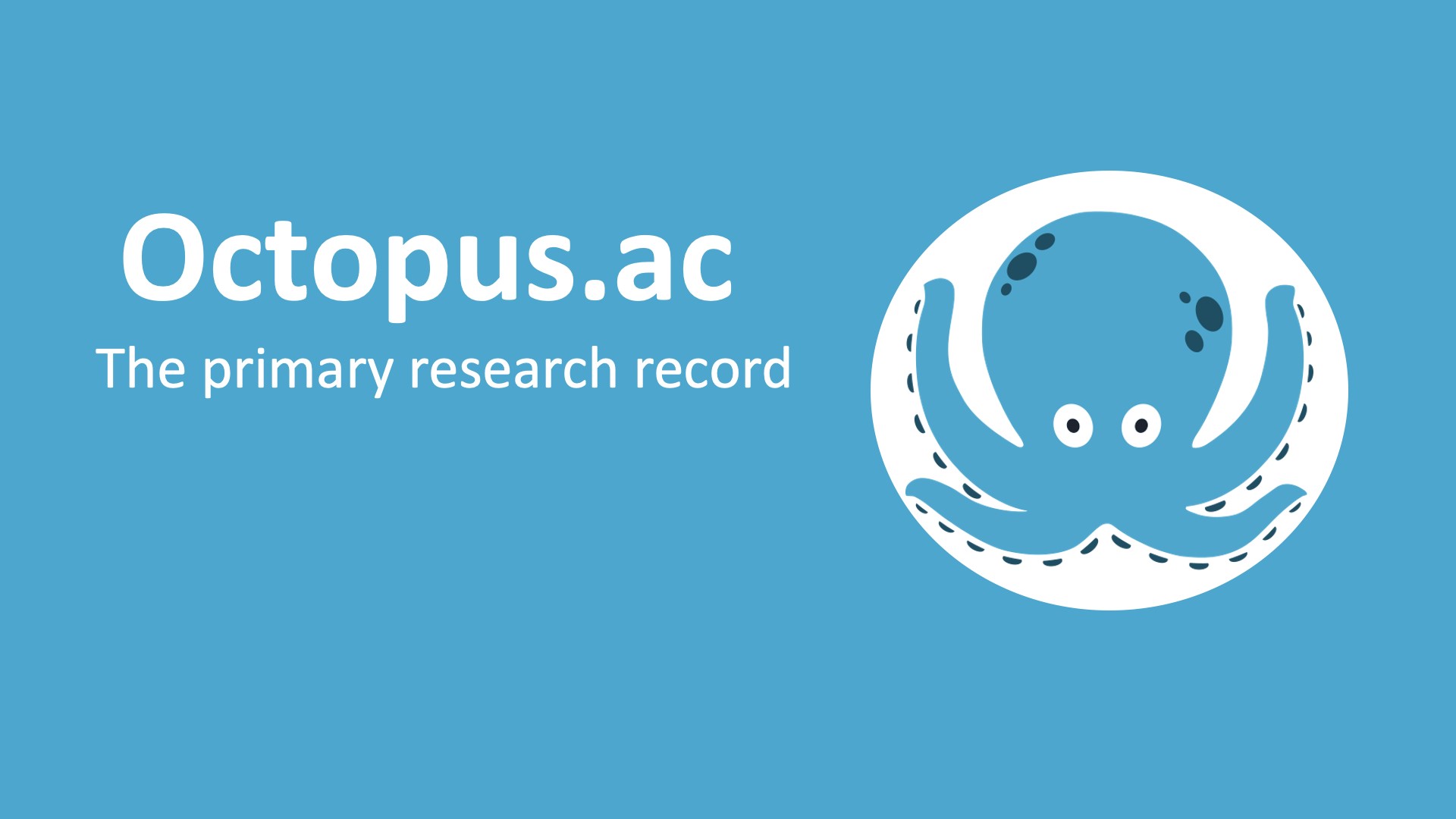Open Research and Scholarly Publications: Open Research Practices

Open Research Practices
Open Research practices vary between disciplines - both in terms of which practices are compatible with each discipline's research methods, and in terms of widely the practices are adopted as standard. The following guides should provide a sense of what various Open Research practices looks like and how you may wish to adopt them:
 Preregistration of Studies
Preregistration of Studies
Preregistering studies at the very beginning of the research process helps avoid research duplication and publication bias, while making the research process open to inform future research.
What is a preregistration
- Preregistration is a time stamped read-only declaration that a study is going to occur, typically posted in a public registry.
- Preregistrations can be updated to reflect adjustments to your project, although this is usually accompanied with a justification explaining why there was an update.
- Preregistration helps make the process of research visible (makes it possible to see decisions that were made) and get early feedback.
- During any study, the researcher has to make decisions about the direction and focus of the work, which will in turn influence the research outcome. The transparency of process that comes from preregistering makes it clear to the reader what decisions were made and how the outcome was reached.
- Preregistration can also help you plan your research better. It can help define the type of work you are doing, for instance whether you are undertaking exploratory or confirmatory research, and ensure you are on the same page about the research with your collaborators before you start collecting data
Where to post preregistrations
|
Open Science Framework (OSF) - The OSF platform offers a preregistration function for publishing time-stamped study designs, with persistent identifiers that allow you to reference them in future publications. As an interdisciplinary platform, OSF allows preregistrations for any subject area. OSF also provide a range of resources to support you with pre-registration, including guides, templates, community support forums and training webinars. |
|
|
ClinicalTrials.gov - Responding to a need for patients to access the latest research in the development of treatment for serious or life-threatening diseases, ClinicalTrials.gov was launched in 2000 as part of a newly passed U.S. law. ClinicalTrials.gov allows clinical studies to be registered, updated and (if required) have the results posted, such that the latest clinical research studies can be discovered by the public, researchers, and health care professionals. |
Helpful Links and Resources
 Sharing Pre-Prints
Sharing Pre-Prints
Publications go through many different versions before it becomes the full final published version, but there are many benefits to making these earlier versions open.
What can you share, when and why
- Most publisher will allow you to share the submitted manuscript freely, as they have had little involvement with it at this point, but will restrict how you can share your Accepted Manuscript and Final Published version. If you are unsure about whether you can share it or not, you can use a service like Sherpa Romeo or HowCanIShareIt.com.
- Sharing an early version of your article allows it to get immediate interest and engagement, and may even result in feedback that may inform your changes as you work through peer review changes.
- Content on pre-print repositories won't generally have been through a formal peer review process, and repositories vary in terms of the criteria of content the host, so it is important to consider the research that is posted there carefully; however, preprint repositories have been highly valued for their ability to rapidly disseminate findings.
- In order to help ensure your preprints remain open and shareable, you may wish to apply a Creative Commons licence to the manuscript when you deposit them in a repository.
Where to share pre-prints
 |
ArXiv - ArXiv is one of the biggest and most long standing of pre-print platforms, having been founded in 1991. ArXiv hosts pre-prints from the fields of physics, mathematics, computer science, quantitative biology, quantitative finance, statistics, electrical engineering and systems science, and economics. |
 |
BioRxiv - Much like ArXiv, BioRxiv is a subject specific pre-print repository, hosting pre-prints from the life sciences. The categories of research article BioRxiv hosts includes Animal Behavior and Cognition, Biochemistry, Bioengineering, Bioinformatics, Biophysics, Cancer Biology, Cell Biology, Developmental Biology, Ecology, Evolutionary Biology, Genetics, Genomics, Immunology, Microbiology, Molecular Biology, Neuroscience, Paleontology, Pathology, Pharmacology and Toxicology, Physiology, Plant Biology, Scientific Communication and Education, Synthetic Biology, Systems Biology and Zoology. |
 |
Social Science Research Network (SSRN) - Currently run by Elsevier, the SSRN is a repository for preprints across the Applied, Health, Life and Physical Science, as well as the Humanities and Social Sciences. |
|
Open Science Framework (OSF) - Overseen by the Center for Open Science, the OSF hosts preprints across disciplines, which particularly supports research that is interdisciplinary or in subject areas that do not have a a prominent repository like ArXiv. Supporting its preprint repository, OSF also provides a searchable indexing service for Preprint servers as it hosts a number of subject specific preprint repositories including PsyArXiv for Psychology and PaleorXiv for Palaeontology. |
|
 |
Directory of Open Access Preprint Repositories (DOAPR) - If you cannot find the right preprint repository to host your research, DOAPR may be able to help. DOAPR lists preprint repositories from a variety of subject areas, and allows them to searched both by discipline and by function. Using DOAPR, you should be able to find a repository relevant to your subject area, or at least an interdisciplinary repository appropriate for your work. |
Helpful Links and Resources
 Sharing Non-publishable Research (Grey Literature, Null/Neutral Results)
Sharing Non-publishable Research (Grey Literature, Null/Neutral Results)
Many academics find that they have a large amount of data and research that goes unshared - maybe because it was inconclusive or didn't have a narrative that would be sellable to a journal - but it is important to share this work to help advance research.
What kind of research is often left unpublished
- Data that is either incomplete or simply gathered from a small exploratory study.
- Results that are neutral/null and therefore have been left in favour of finding something else.
- Research papers that aren't particularly novel or exciting and thus harder to get published.
- Work that was left as the researcher have time to prepare it for publication in a journal.
- Preprints that have been rejected due to a lack of novelty that would draw readership, or that are simply unable to be published in the most appropriate journal due to publication charges.
- Replication studies that validate results rather than challenge the consensus.
Why should this work be shared if it won't be published
- Prevalence of Publication Bias - Research only develops with ‘self-correction’, but not all developments are marketable to journals. Publication bias is where only research with “significant” conclusions, narrative and/or novelty are published, meaning that developments that could lead to innovative future work are left unshared.
- Supporting Reproducibility Studies - A good way to maintain this 'self-correction' of research is through reproducibility studies, but as this work is reproducing work rather than new work, it is not as encouraged. Having avenues to share this work when it is undertaken helps instil trust that conclusions are accurate and reliable,
- Avoiding Unnecessary Reproduction - While ensuring reproducibility is to be commended, not all work needs to be replicated. Often studies find no correlations through null or neutral results, and while these studies may go no further, they should still be shared to cut down on the potential wasted time of other researchers who, without knowing that this work has already happened, may replicate the study only to find these null results.
Where to share non-publishable work
|
Fiddle (File Drawer Data Liberation Effort) - The QUEST Centre of the Berlin Institute of Health have developed the tool Fiddle to help researchers find the most appropriate place to share research papers and data that may not be shared by conventional publishers. By selecting a few parameters around where and how you would like your work to be shared, Fiddle will suggest potential ways your work may still be shared, and providers that may host it. A full intro to Fiddle can be found in the video summary below: |
 Open Peer Review
Open Peer Review
Participating in open peer review or publishing in venues with open peer review can help with highlighting conflicts of interest, affording a transparency that instil a trust in the publication process.
Types of Peer Review
|
|
|
|
|
Avenues for Open Peer Review
Typically, it will be the journal's own decision whether they adopt Open Peer Review as part of their practices. You may wish to consider peer review style when you are picking which journal to submit to, but there are other ways your work can benefit from not only Open Peer Review, but Transparent Peer Review (i.e. open peer review where the reviewer's response is published with the work).
|
|
Science Octopus - Science Octopus is an alternative platform that breaks up research into the Research Problem, Rationale / Hypothesis, Method, Results, Analysis, Interpretation, and Real World Application. Each aspect builds on the next, and can be picked up and responded to by others. The final aspect is Peer Review, whereby a review of the previous aspects is published openly with the reviewer's identity, which is itself open for comment and reflection. |
|
|
Pre-Print Peer Review Sites - Following the coronavirus outbreak that triggered a need for rapid review and dissemination of peer reviewed research, a number of pre-print peer review sites began to emerge. These sites allowed open, transparent peer review of submitted manuscripts, ensuring trust in their contents, as they made their way through the (often slow) process of publication in a journal. Some such sites include Science Colab, Rapid Reviews, Peer Community In, Review Commons and PREreview. |
Helpful Links and Resources
Contact Us
📍 Where to find us:
 Lanchester Library
Lanchester Library
Coventry University
Frederick Lanchester Building
Gosford Street
Coventry, United Kingdom
CV1 5DD
📞 Phone:
024 7765 7568
- Last Updated: Dec 9, 2025 9:02 AM
- URL: https://libguides.coventry.ac.uk/rsp
- Print Page
Coventry University
Frederick Lanchester Building
Gosford Street
Coventry, United Kingdom
CV1 5DD
Telephone:+44 (0) 24 7765 7575
Email: ask-a-librarian.lib@coventry.ac.uk






